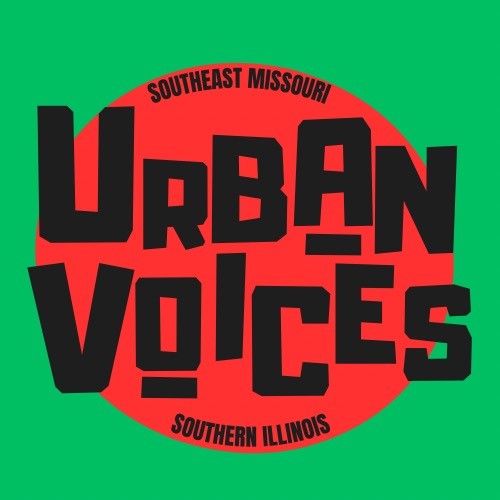By L. Williams
On January 20, 2025, former President Donald Trump signed a wave of executive orders addressing various policy areas, immediately reshaping the national agenda. While these actions have broad implications for the entire country, African American communities and other communities of color are positioned to face unique and disproportionate challenges. This commentary examines the immediate and potential long-term effects of these directives in critical areas such as economic disparities, healthcare access, criminal justice, immigration, education, civil rights, and social safety nets.
Immediate Consequences
One of the most consequential executive orders signed by Trump focuses on significant tax cuts for businesses, marketed as a strategy to spur economic growth. While such measures may boost corporate profits and the stock market, they disproportionately benefit wealthy individuals and corporations, leaving marginalized communities behind. African American households, which already experience a racial wealth gap, are not likely to see substantial benefits. Moreover, these tax cuts could lead to reduced public revenue, threatening essential public services like education, housing assistance, and social welfare programs—services that African American communities disproportionately rely on. The long-term result? Widening economic disparities.
Another key executive order targets the Affordable Care Act (ACA), aiming to dismantle critical provisions that expanded access to healthcare. This could lead to millions losing their health insurance, particularly African Americans and other communities of color, who suffer from higher rates of chronic illnesses such as diabetes and hypertension. With fewer protections and less access to affordable healthcare, these communities risk worsening health disparities, increased medical costs, and poorer overall outcomes.
In a significant reversal of prior reforms, Trump’s executive order bolsters funding for law enforcement and reinstates “tough-on-crime” policies. While framed as an effort to ensure public safety, these policies are likely to escalate the already disproportionate incarceration rates among African Americans and other people of color. Given systemic biases in the justice system, increased policing and harsher sentencing policies could exacerbate racial disparities in arrests and imprisonment, further destabilizing families and communities.
Pardons for January 6 Defendants. One of Trump’s most controversial moves was issuing sweeping pardons for nearly all individuals charged in connection with the January 6, 2021, insurrection. Over 1,500 defendants received pardons, while sentences for others were commuted. Former U.S. Capitol Police officer Harry Dunn, who defended the Capitol that day, described the decision as a “betrayal” to law enforcement and a danger to public safety. This action not only undermines accountability but also sets a troubling precedent, normalizing political violence and deepening divisions in the country.
Potential Long-Term Consequences
Trump’s executive orders on immigration include measures to tighten border controls, restrict asylum, and increase deportations. These actions could destabilize immigrant communities of color, leading to family separations and reduced community cohesion. Additionally, reports suggest that Trump’s administration plans to end birthright citizenship for children of noncitizens—a direct challenge to the 14th Amendment. Such policies are likely to face legal challenges, but the uncertainty they create can instill fear and insecurity among immigrant families, disrupting lives and livelihoods.
Potential funding cuts for Title I schools, which serve predominantly low-income students, and reduced support for Historically Black Colleges and Universities (HBCUs) could have devastating effects on educational equity. African American students, already facing systemic barriers, may encounter diminished resources and opportunities, further entrenching educational disparities. These cuts would not only limit individual prospects but also hinder long-term community development. It’s important to remember Trump’s prior budgets cut funding to HBCU’s only to be saved by the efforts of the Congressional Black Caucus.
Trump’s directives signal potential reductions in the enforcement of anti-discrimination laws, raising alarms about housing, employment, and educational equity. Weakening civil rights protections could allow discriminatory practices to flourish, undermining decades of progress toward racial justice Disproportionately impacting African Americans and other marginalized groups and perpetuating systemic inequities.
Trump’s reversal of key Biden-era environmental and LGBTQ+ protections marks a significant policy shift. Rolling back initiatives aimed at combating climate change—such as the executive orders “Protecting Public Health and the Environment” and “Revitalizing Our Nation’s Commitment to Environmental Justice for All”—poses particular risks to low-income and minority communities that often bear the brunt of environmental hazards. Similarly, rescinding protections against discrimination based on gender identity or sexual orientation jeopardizes the rights and safety of LGBTQ+ individuals who already face compounded vulnerabilities.
Trump’s broader agenda includes proposals to overhaul Medicare, Medicaid, and Social Security, programs critical to the well-being of millions of Americans. Cuts to Medicaid could result in significant losses in healthcare access for low-income families, while changes to Social Security threaten the financial stability of many seniors. African American communities, which rely heavily on these programs due to systemic economic disparities, would be disproportionately harmed by these reductions.
Trump’s executive orders highlight the urgency for policymakers, activists, and community leaders to mobilize. Advocacy must focus on safeguarding vulnerable populations, ensuring accountability, and promoting policies that advance equity and justice. For African American communities and communities of color, this means amplifying voices, building coalitions, and demanding systemic change at local, state, and federal levels.
The executive orders signed by Trump, represent a major shift in the socio-economic and political landscape of the United States. While their full impact will unfold over time, the immediate and potential consequences for African American communities and communities of color are profound. From economic inequality and healthcare access to education and civil rights, these policies pose significant challenges that demand a unified response. Ensuring that the voices of affected communities are prioritized in policy debates is critical to building a more equitable and just society.





























